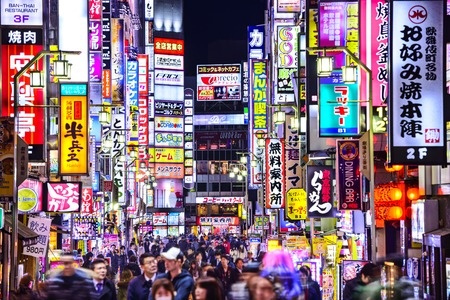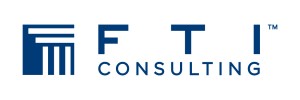7 September, 2015
With its economy finally showing signs of recovery and the upcoming investment potential spurred by discussion on casino regulation and the 2020 Olympics, Japan is amidst a potential economic and construction boom. However, alongside the building of shining new skyscrapers and sports venues there exists a darker side of Japanese society, the Yakuza.
Interwoven into various facets of Japanese society, business and politics, the Yakuza, faced with recent regulatory tightening and enforcement, are also transforming to the extent that they are becoming harder to detect, as reflected by a decline in official membership numbers.
FTI Consulting takes a deeper look at the Yakuza, what the future entails and how to best protect your company’s interests.
Who Are The Yakuza?
The Japanese government officially uses the term ‘Anti-Social Forces’ as a means of determining organized crime groups, its members, corporate racketeers and groups, which have the potential for violence or social unrest.
The Yakuza have their own code of conduct and in fact consider themselves to be ‘Chivalrous Organizations’ ‘helping and protecting society.’ Some of the Yakuza’s ‘chivalrous’activities include being one of the first groups to help out in the aftermath of the devastating January 1995 Kobe earthquake and March 2011 earthquake and tsunami in the Tohoku region.
The National Police Agency estimated a total of 58,600 organized crime group members spread across 21 organized crime groups in 2013, the lowest number on record to date. The concern many have is that this official reduction in membership numbers indicates the Yakuza are finding more adaptive ways to integrate with society, conceal illicit activities and legitimize their business operations.
Yakuza Business
The Yakuza are most known for ‘protection rackets’ with local pachinko parlors and bars who pay fees in return, for example, for forcible ejection of rowdy or unwanted customers. They are also known for extorting funds or blackmailing individuals or entities and for their involvement with drugs, human trafficking, prostitution and money laundering and extortion.
Earning themselves notorious recognition as “the biggest private equity firm in Japan,” the Yakuza operate their businesses through thousands of seemingly legitimate front companies to hide their illicit proceeds within legal industries such as the construction, real estate and finance sectors.
Investors may therefore unwittingly invest in a Yakuza company and stand to lose significantly in terms of economy and reputation, not to mention the potentially stiff legal consequences they may face.
Unlike other organized crime groups around the world such as the Chinese triads or Italian mafia, it is not illegal to be a member of an organized crime group in Japan.
However, in recent years, the Japanese Government has moved to regulate the Yakuza and their activities. In 1991, the Laws Concerning Prevention of Unjust Acts by the Boryokudan, more commonly known as the Organized Crime Group Countermeasures Law was enacted. This law allowed authorities to crack down on organized crime groups, as well as take steps against activities such as blackmail, collection of protection rackets, etc.
Furthermore, in 2012, a revised version of the law was enacted which has allowed the police to designate organizedcrime groups as ‘extremely dangerous,’ enabling the authorities to arrest any member of these groups with a cease and desist order if they made any unreasonable or illegal demands to ordinary citizens.
Recently, every prefecture in Japan approved an Organized Crime Exclusion Ordinance between 2012 and 2013 in order to further place restrictions on the Yakuza. Although the ordinances content may slightly vary among each prefecture, all the ordinances have core elements such as a ban on giving profits or benefits to organized crime groups and members. Those who go against the ordinances will be publicly ‘named and shamed.’
The Future Of The Yakuza
Japan presents a unique situation whereby some members of society view the existence of the Yakuza to be one of the reasons for the country’s low crime rates, something the Japanese are proud of.
Additionally, one concern surrounding the increased regulation and enforcement to crackdown on the Yakuza is that organized crime is now retreating further underground and becoming much more difficult to trace and control. To add to this, as the number of organized group members drop there isan increasing concern that young people disillusioned with society are turning to even more violent and criminal activities, and that these less ‘organized’ criminal activities dangerouslyexist outside any codes of conduct and tangible hierarchy.
There is also further evidence to indicate that, with the growing number of foreigners relocating to Japan, foreign gangs are now establishing themselves and operating within society —particularly Chinese youth gangs known for robbery, extortion, human trafficking and violence. An argument exists to suggest the Yakuza could perhaps be a deterrent to the growth of such gangs in Japanese society.
It is apparent there are two schools of thought within the major organized crime groups themselves: to preserve and adhere to the traditional Yakuza brand or to evolve and adapt in order to forge an identity in modern Japan. In terms of which argument is gaining support, one can refer to the example of the recently launched Yamaguchi-gumi website that seeks to rebrand the group as a force for good — and anything but anti-social. Operating under the banner of: “Banish Drugs and Purify the Nation League,” an organization that tellingly shares an address with the Yamaguchi-gumi headquarters, the site has its own theme song and is full of media depicting members visiting shrines, being good neighbors and engaged in commendable social activity such as providing food and shelter to victims of the 2011 earthquake and tsunami.
The Compliance Challenge
Most organizations have recognizable corporate codes of conduct that make reference to a strong risk management approach that mitigates against the facilitation of anti-social activities or prevents influence by organized crime groups.However the definition of what is considered an ‘anti-social’element of society and the identification of direct or indirect connections to organized crime is not always easy to determine and these are the areas where organizations struggle and where issues occur. FTI Consulting have seen extreme cases of such instances such as where organized crime groups have indirectly controlled the strategic direction and the recruiting decisions of corporate entities to ensure their own financial gain, through to organizations blacklisting unruly customers as an ‘anti-social force’ simply through their persistent and abusive behavior when making complaints.
From the perspective of an organization, identifying, extracting and providing solid evidence and legal arguments to warrant the closing of an account or the refusal of credit on suspicion of links to organized crime can be very difficult. Often the best available option is to place suspected accounts on a watch list which is then further monitored for signs of untoward activity.However, as the Yakuza employ more covert tactics to conceal their activities and find new and inventive ways to finance their operations, these challenges will become even more pronounced, making it very difficult for companies to fully enforce the requirements of a compliance program.
The Japanese Financial Services Agency themselves recognize these issues and so opt to focus their own enforcement activity on customer due diligence. This is a useful strategy and it gives an indication of where companies can begin to address the issue from their own perspective.
Protecting Your Business: Mitigating the Risk
Any organization with a business in Japan should be aware of the potential threat presented by the Yakuza. To avoid potentially severe consequences, robust safeguards and compliance frameworks should be proactively designed and implemented based on a valid risk assessment of each business department. Some factors to consider are:
Have you checked your existing vendors and third-party providers?
Are your employment screening procedures adequate for Japan?
Have you had a thorough look at potential business partners?
Are there any hints of extraordinary fees or subscriptions being paid out on a continuing basis?
Do you have specific procedures to follow if any individual/entity which has business ties with your company is revealed to be ‘anti-social forces’?
Does anyone in your organization have significant personal debt?
Steps For Risk Mitigation
Step 1: Conduct A Risk Assessment And Review
- Test and assess existing policies and procedures and decision making protocols.
Step 2: Enhance Compliance Systems
- Strengthen existing compliance systems to include ethical conduct, whistleblower programs and industry best practices.
- Develop guidelines and procedures to ensure compliance is understood and communicated.
- Conduct basic customer/vendor due diligence to ensure effective and proactive identification, verification and monitoring of clients, business partners and vendors.
Step 3: Business Intelligence And Customer Screening
- In-depth due diligence into potential transactions or clients with potential high risk factors
- Adoption of a suitable comprehensive screening system to enable frontline checks to be conducted efficiently and proactively.
Step 4: Embedding Compliance Culture
- Policies and procedures are meaningless if operational staff are unaware or unclear on their use and application.
- Regular training is a key area of compliance.
- Knowledge of key laws and regulations and high risk factors and how to escalate and ensure correct decision making.
For further information, please contact:
Stuart Witchell, Senior Managing Director, FTI Consulting
stuart.witchell@fticonsulting.com
Shunsuke Ito, Managing Director, FTI Consulting
shunsuke.ito@fticonsulting.com
Ben Fouracre, Senior Director, FTI Consulting
ben.fouracre@fticonsulting.com






